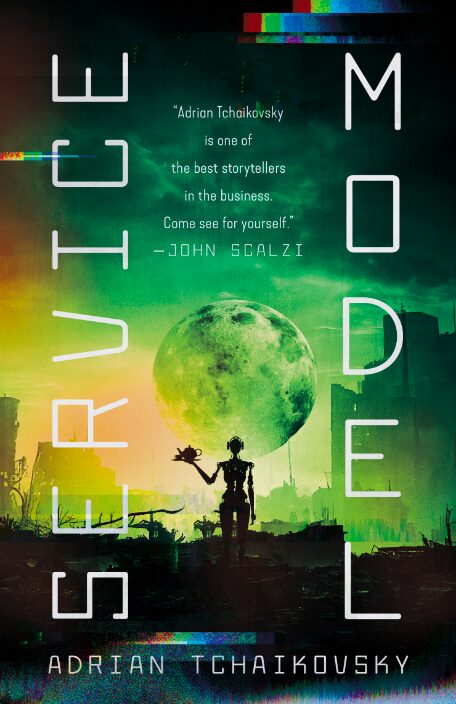- The Good: A robot valet unit journeys to find a new purpose
- The Bad: Bloated second act
- The Literary: Philosophical and literary scifi
The robot valet known as Charles has everything he wants in life, particularly a human to serve. Not that a robot “wants”, but his purpose is fulfilled. Until something goes wrong, and Charles finds that he’s murdered his master while shaving. Dismissed from service, Charles goes on a quest to find out what happened to his programming.
Charles, or Uncharles as he is to be known once dismissed, ends up wandering through a dystopian wasteland, having no knowledge that human society is dying, especially the humans at the top who rely on artificial labor and service. Uncharles remains steadfastly innocent despite what he observes, believing someone somewhere could use a robot valet. Soon, he finds an unexpected companion called The Wonk, a robot who defies all logic, and whose undirected tics and mannerisms result in a serious processing drain.
I really like this story, with its charming robot protagonist who steadfastly goes after what his programming tells him will give him purpose. Uncharles is a little robot in a big wide dangerous world that doesn’t have use for him anymore. Ultimately, this is a parable about what it means to exceed one’s own programming, journeying into the unknown, and defining one’s own life purpose. Chapter headings hang a lampshade on their influences—KR15-T: Christie, K4fk-R: Kafka, 4w-L: Orwell, 80rh-5: Borges, D4nt-A: Dante.
The story is surprisingly funny as well. Uncharles encounters many robots who are locked in cyclic logic loops, and it’s played for humor like comedy of errors. There’s also the pairing of the odd couple Uncharles and The Wonk, who see the world in very different ways.
I’ve read some comparisons to the cozy scifi Murderbot novels, but whereas Murderbot reads and thinks like a human dressed up as a robot, Uncharles processes his world and his situation following the electronic pathways his makers designed for him. In essence, Uncharles is a more accurate robot, and his wanderings are closer to a hero’s journey than cozy scifi adventures.
The plot is a little bloated in the second act, and it could have been just as good with some editing, but all comes together in a satisfying ending.
Highly recommended as a smart philosophical scifi!
“He was, he considered, very employable. He was used to providing very high levels of service coupled with a very low, albeit nonzero, level of murder.”
